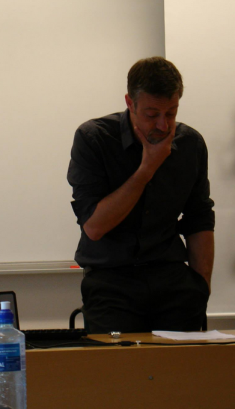A number of possible blog topics seem to be possible today. I could talk about the recent Religion Dispatches interview – and all the negative comments, there and elsewhere, in response (more positive was this one). I won’t – some commenters make useful points, but many seem to have only read the first line or two. I think it best to edge away from responding to every comment made – and re-engage with ones that seem actually interesting in a few months, as dust settles. [Though it may be worth quoting the opening of the book – as people seem to think I am actually threatening violence: When… …I want to punch their face. Hard. But I don’t; partly because it is a poor way to recruit students, and also because it is probably wrong. And I am a coward who fears retaliatory pain. There is no threat here people!]
The other topic, as those who follow me on twitter will know, is an obsession (though I am now recovering a little) with Unicorn Healing – and claims such as this one:
 Unicorns have agreed for the first time to join with a human healer in helping us remove negative energy from our earth.
Unicorns have agreed for the first time to join with a human healer in helping us remove negative energy from our earth.
But I’ll leave that alone too. What I did want to look at was death. A number of those who do (or will, I anticipate, knowing some of the destinations of review copies) object to the book have done so on the grounds that either (a) I can’t be sure that we don’t survive death or (b) we do survive death. As those who’ve read the book will know – I am fairly emphatic:
The end is what death is. It is its fullness of meaning. Its end-ness is what inhabits the concept most fully. To repeat the mantra of non-end-ness to death is to stand with eyes closed, fists clenched and to scream against a hurricane. The new age approach is to dwell beneath a duvet of (self)deception and hope that the dawn’s fresh light will chase away the demons. The demon of death is not scared of daylight though, and walks proud through our circles of protection; lord of nature, rather than repelled by it.

I stand by this. To accept any other view is to allow for a life where death takes on a different value: and therefore one where life does also. Even if we allow an epistemological wobble here – and demand that I concede that life-beyond-death may be possible, I am not sure this matters. Even though the burden of proof ought to be elsewhere, we might concede the possibility. But does it matter if we do so? I would argue that it does not. In the absence of evidence (and if NDEs are the best we have, that is looking fairly flimsy) that is clear – perhaps a better way to put my view here, is that we should live as if death is absolute and total annihilation of all we are and ever could be.
We can still concede it as possible that it could be otherwise – but knowing nothing of it, that mere possibility, with so little to seem to commend it, seems to do nothing to alter the existential realities we know that we do face.







 One small section of shelving was labeled ‘Religions’ and it had a small selection of introductory titles, a modest selection of Bibles and prayer books, and displayed on the top, Alain de Botton’s Religion for Atheists. So far so predictable. But next to those shelves was a huge block, three times as wide, devoted to the assorted nonsense called ‘Mind, Body, Spirit’ – the ever-expanding MBS of publisher/bookshop-speak. But where was the Philosophy section? Tucked in the corner was a category called ‘Smart Thinking’, which did (thankfully, if I’m to supplement my modest pension) have a copy of my Understand Philosophy, along with some of the usual popular philosophy suspects, along with advice of perking up your capacity to think.
One small section of shelving was labeled ‘Religions’ and it had a small selection of introductory titles, a modest selection of Bibles and prayer books, and displayed on the top, Alain de Botton’s Religion for Atheists. So far so predictable. But next to those shelves was a huge block, three times as wide, devoted to the assorted nonsense called ‘Mind, Body, Spirit’ – the ever-expanding MBS of publisher/bookshop-speak. But where was the Philosophy section? Tucked in the corner was a category called ‘Smart Thinking’, which did (thankfully, if I’m to supplement my modest pension) have a copy of my Understand Philosophy, along with some of the usual popular philosophy suspects, along with advice of perking up your capacity to think. Unicorns have agreed for the first time to join with a human healer in helping us remove negative energy from our earth.
Unicorns have agreed for the first time to join with a human healer in helping us remove negative energy from our earth.